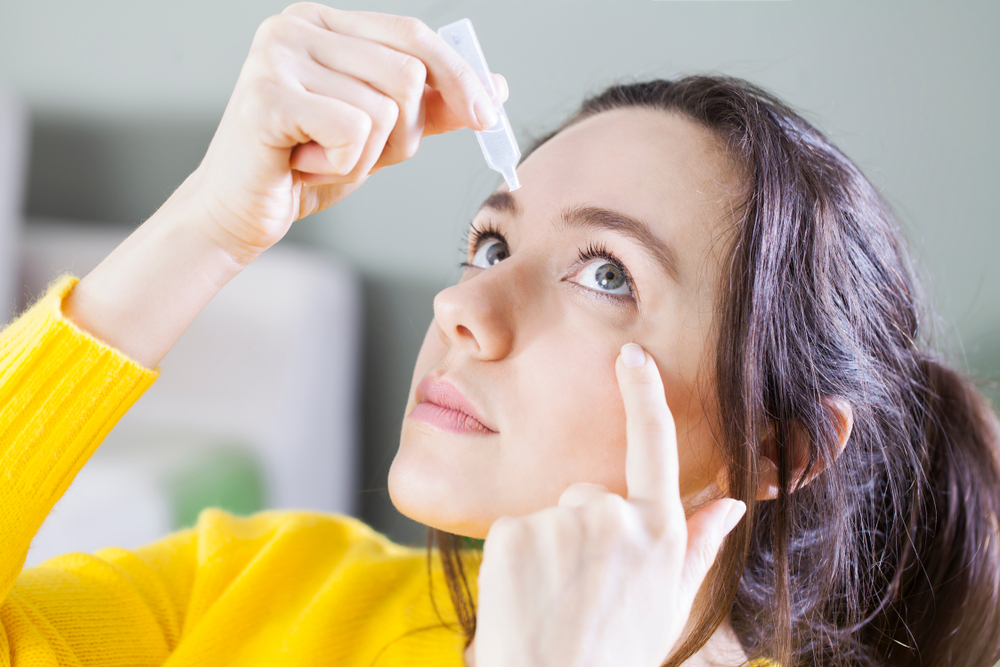
According to the Centers for Disease Control and Prevention, more than 40 million people in America wear contact lenses to correct their vision. Most people prefer contact lenses because they are comfortable to wear and correct vision without changing one's appearance. But if you suffer from a preexisting dry eye condition, the experience of using contact lenses is less than pleasant.
Dry eye is a common condition. It can affect people who wear contacts and those who don't. In some cases, dry eye can come from wearing contact lenses. Wearing contact lenses when you have dry eye can make your visual symptoms worse or cause new symptoms.
If you suffer from dry eye and wear contact lenses, does this mean you have to give them up? No! Thankfully, there are things you can do to manage dry eye while enjoying wearing contact lenses. To do this, you must first understand what dry eye is and what causes it.
Understanding Dry Eye Condition
Dry eye is a condition where the eyes cannot maintain the right amount of moisture to keep them lubricated and comfortable. There are two types of dry eye: insufficient tear volume and poor tear quality.
Insufficient Tear Volume - In this case, the glands responsible for producing tears cannot generate enough tears to keep the eyes hydrated. This type of dry eye mostly affects older people. Other health issues such as vitamin A deficiency, rheumatoid arthritis, allergies, lupus, and diabetes can affect the production of tears.
Poor Tear Quality - Tears contain three main components: oils, water, and mucus. Tears that lack one of these components can cause dry eye. Oil is the most essential of the three as it seals the tear film to prevent the tears from evaporating. Some issues, such as blepharitis and meibomian gland dysfunction, can block the production of these oils.
What Causes Dry Eye?
Allergies
Smoke, wind, and dry air
Infrequent blinking
Eye lid problems (entropion and ectropion)
Medication such as blood pressure medication, antidepressants, and antihistamines
Damage to the tear gland
Managing Dry Eye for Contact Lens Wearers
Most contact lens wearers have to keep them in throughout the day, making it tedious to treat dry eye. The good news is that treatment options can help relieve inflammation and irritation. However, talking to your eye doctor before taking action is important.
Medicated Eye Drops - There are special eye drops you can use to help with the production of tears. Use the eye drops even when your eyes don't feel dry. You can get oral medication as well if you prefer them. Do not get over-the-counter medicines. Ensure you get a prescription from your eye doctor.
Disposable Lenses - Consider switching to soft disposable lenses. These have a hydrogel material that contains water. Lenses containing silicone-based hydrogel prevent water from evaporating quickly, keeping your eyes hydrated for longer.
Other ways you can manage dry eye include:
Wear sunglasses regularly or eyeglasses to let your eyes breathe for a few hours
Avoid rubbing your eyes
Keep your environment clean and dust-free
Avoid too much screen time
Never sleep in your contacts
Go for regular eye exams to help diagnose any potential issues
To learn more or to book a visit, call Advanced Eyecare Consultants at 847-994-4500 for Libertyville or 847-438-7700 for Lake Zurich, Illinois..








